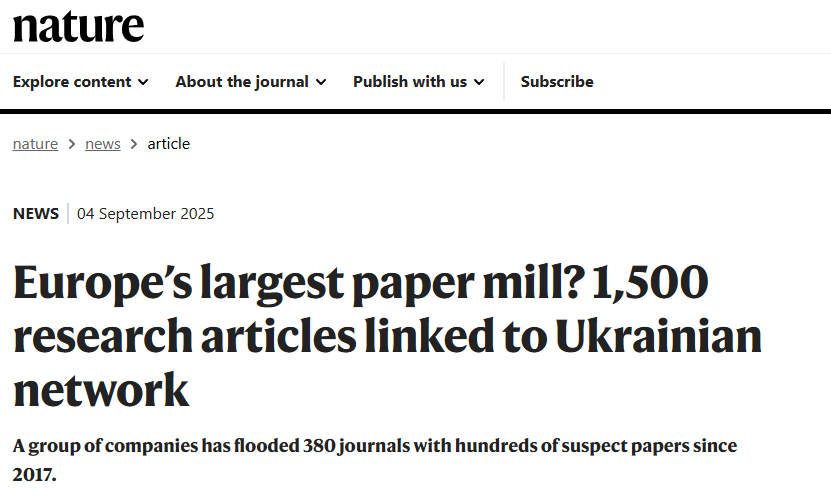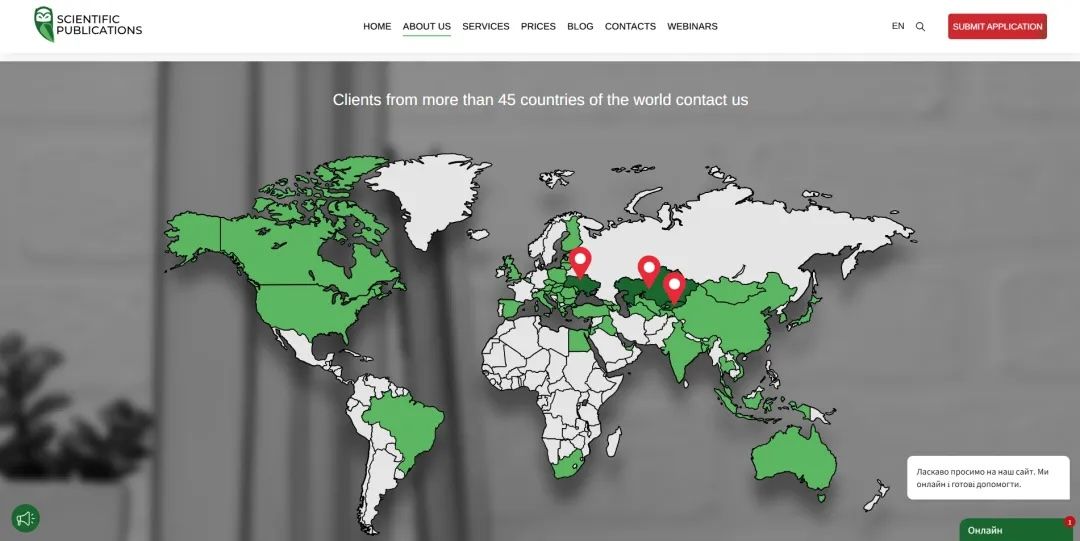The Rise of Paper Factories: A Crisis in Global Research Integrity
-
In September 2025, Nature unveiled what is now considered the largest paper factory scandal in academic history. More than 1,500 papers are suspected to be fraudulent, linked to a Ukrainian company called Scientific Publications, with over 4,500 researchers across 46 countries and 460 universities potentially implicated. What seems like an isolated scandal is in fact a window into systemic flaws in global academia — where the pursuit of metrics, promotions, and funding drives demand for manufactured scholarship.

Discovery of the Paper Mill
The unraveling began in 2022 when German research-integrity sleuth Anna Abalkina noticed unusual email domains attached to supposedly independent articles. Instead of the standard .edu or .ac suffixes, many authors used the domain Tanu.pro. Tracing this anomaly revealed a sophisticated operation: a network producing ready-to-publish papers for paying clients.
Between 2017 and 2025, Nature confirmed that at least 1,517 published papers could be tied to this network. But this is likely only the tip of the iceberg.
Anatomy of a Paper Factory
The Ukrainian company at the center, Scientific Publications, openly advertised its services:
“Order the publication of a scientific article in a high-rated journal right now. We guarantee the result.”
Unlike legitimate consulting or editing services, the company offered end-to-end production: selecting topics, writing manuscripts, fabricating data, and placing articles in journals. Such guarantees are antithetical to science, where failure is the norm.
The company adapted to scrutiny by relocating operations from war-torn Kyiv to Kazakhstan and Kyrgyzstan, while also masking email identities using common domains to evade detection. This evolution underscores a disturbing reality: as publishers improve checks, paper mills innovate in parallel.
The Scale of Contamination
According to Springer Nature data, over 8,400 submissions tied to this paper mill were intercepted. Still, 79 papers slipped through, with 48 already retracted and 31 under investigation.
What makes the scandal alarming is its global scope. Researchers from Asia, Europe, Africa, and the Americas appear on author lists. Some may have been naïve clients seeking “help,” while others knowingly purchased authorship for career advancement.

Community Voices: Pressure, Cynicism, and Despair
Reactions from the academic community, particularly medical professionals in China, reveal frustration with systemic pressures:
-
Clinical master’s students lament that promotion demands research papers, even though their training should focus on practical skills. One commenter noted:
“Clinical professional degrees are about skills, not academic research. But the system forces us otherwise.”
-
Doctors in community hospitals face impossible choices:
“If you need a paper for a title promotion but lack resources, how can you avoid fraud?”
-
Others point to the perverse incentives:
“As long as promotions, salaries, and social status are tied to papers, misconduct is inevitable.”
-
Cynicism runs deep:
“It’s not research ability, it’s just the ability to fabricate.”
“What has all this ‘research’ actually changed in medicine?”
Together, these voices illustrate the human cost of metric-driven evaluation: ideals of healing and patient care displaced by paper quotas.
Beyond Ukraine: A Structural Problem
It would be simplistic to frame this as a “Ukrainian problem.” Paper mills thrive wherever there is demand. As one comment bitterly observed, “When everyone is required to publish, paper mills will naturally emerge.”
Indeed, Scientific Publications is just one node in a transnational academic black market. Geography and language are no barriers; money is the only common denominator.
Toward Solutions: Breaking the Incentive Cycle
Solving this crisis requires more than exposing one paper mill. It demands global reform:
- Journals must enhance verification, not just of images and statistics but also of authorship legitimacy and research logic.
- Universities must devalue quantity of publications as a career metric, focusing instead on quality, reproducibility, and clinical or societal impact.
- Researchers must resist shortcuts. As one community voice emphasized:
“You can be slower, you can fail, you can publish less — but never destroy years of work and credibility with fraud.”
Conclusion
The Ukrainian paper mill scandal is not an anomaly but a symptom of systemic malaise in academic culture. As long as promotions, salaries, and prestige are tied to publication counts, the market for fraudulent research will persist.
For science to retain public trust, researchers, institutions, and publishers must work together to realign incentives, strengthen integrity checks, and above all, reaffirm that failure and slow progress are integral to real discovery.
If not, the academic record will continue to be flooded with counterfeit knowledge — eroding both the credibility of science and its power to serve society.
The article: https://www.nature.com/articles/d41586-025-02809-y
-
